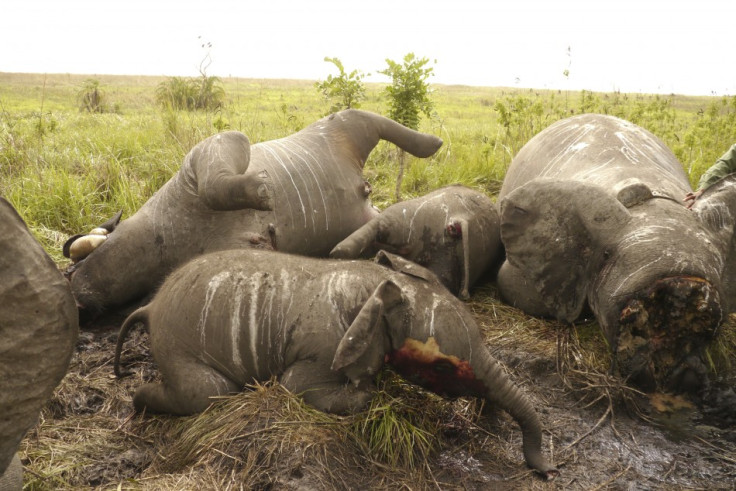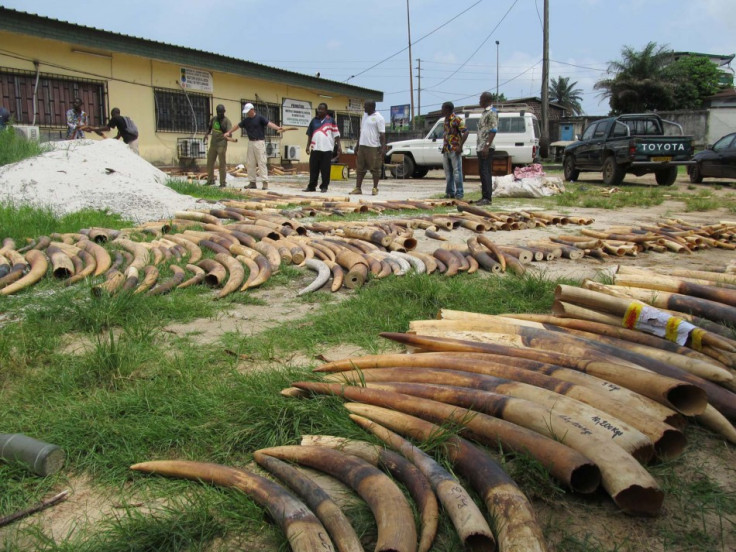Gabon: Ivory Poachers Slaughter 11,000 Elephants in Minkebe National Park
African 'haven' for large herds of endangered elephant sees two-thirds of population wiped out

One park in Africa has lost 11,000 elephants to ivory poachers, the Wildlife Conservation Society has said.
Two thirds of the elephant population in Gabon's Minkebe Park have been slaughtered by poachers in less than 10 years, its survey found.
The park was once home to the largest elephant population in Africa but a recent survey by the WCS, WWF and Agence Nationale des parcs Nationaux, has shown most of the animals have been killed since 2004.
The WCS estimates that most of the 11,000 elephants were poached in the last five years.
Christian Samper, WCS president and CEO, said: "This sad news from Gabon confirms that without a global commitment, great elephant populations will soon become a thing of the past
"We believe that elephants can still be saved - but only if nations greatly increase their efforts to stop poaching while eliminating the illegal ivory trade through better enforcement and reduced demand."
Gabon is home to over half of the forest elephants in Africa, with a population of 40,000.
Until recently, it was thought these elephants were less at risk from poaching than other parts of Africa.
However, Gabon's National Park Agency says there has been a rise in poaching over recent years.
In June 2011, there was an increase in human activity in Minkebe National Park, with a camp of 300 miners becoming home to 5,000 poachers, drugs and arms dealers and miners.
From 2011, authorities estimated that between 50 and 100 elephants were killed every day because of increased demand for ivory.

Gabon has upped its anti-poaching efforts and staff were recently involved in a firefight with armed raiders after arresting two individuals who were carrying six tusks.
Lee White, head of the ANPN, said: "Over the last three years we have deployed 400 additional parks staff, 120 soldiers and 30 gendarmes in our fight to stop illegal killing of elephants for the black market ivory trade.
"Despite our efforts we continue to lose elephants every day. If we do not turn the situation around quickly the future of the elephant in Africa is doomed.
"These new results illustrate starkly just how dramatic the situation has become. Our actions over the coming decade will determine whether these iconic species survive."
Ali Bongo Ondimba, Gabon's president, said the government would increase prison sentences on poachers. New sentencing guidelines suggest three years for poaching and 15 years for poaching and trafficking ivory.
Ondimba called the survey results a national emergency and said a strong, coordinated and decisive response was required.
Mike Fay, a WCS explorer who helped convince the late Gabonese president Omar Bongo Ondimba create a network of 13 national parks in 2002, said: "Conservation efforts in the Minkebe region have failed to react to the growing pressure of ivory poaching with tragic results.
"We need to rethink how we do business and to act decisively if we are to save the elephant."
In northeast India militants hunt rare, single-horned rhinos with AK-47 assault rifles as poachers take advantage of the huge demand for rhino horns in China and south east Asia.
The Kaziranga National Park in Assam has a magnet for poachers. Eight rhinoceroses have been killed in 2013 alone.
An estimated 2,500 of the world's 3,000 one-horned rhinos live in Kaziranga and their horns are used as medicines and aphrodisiacs.
© Copyright IBTimes 2024. All rights reserved.






